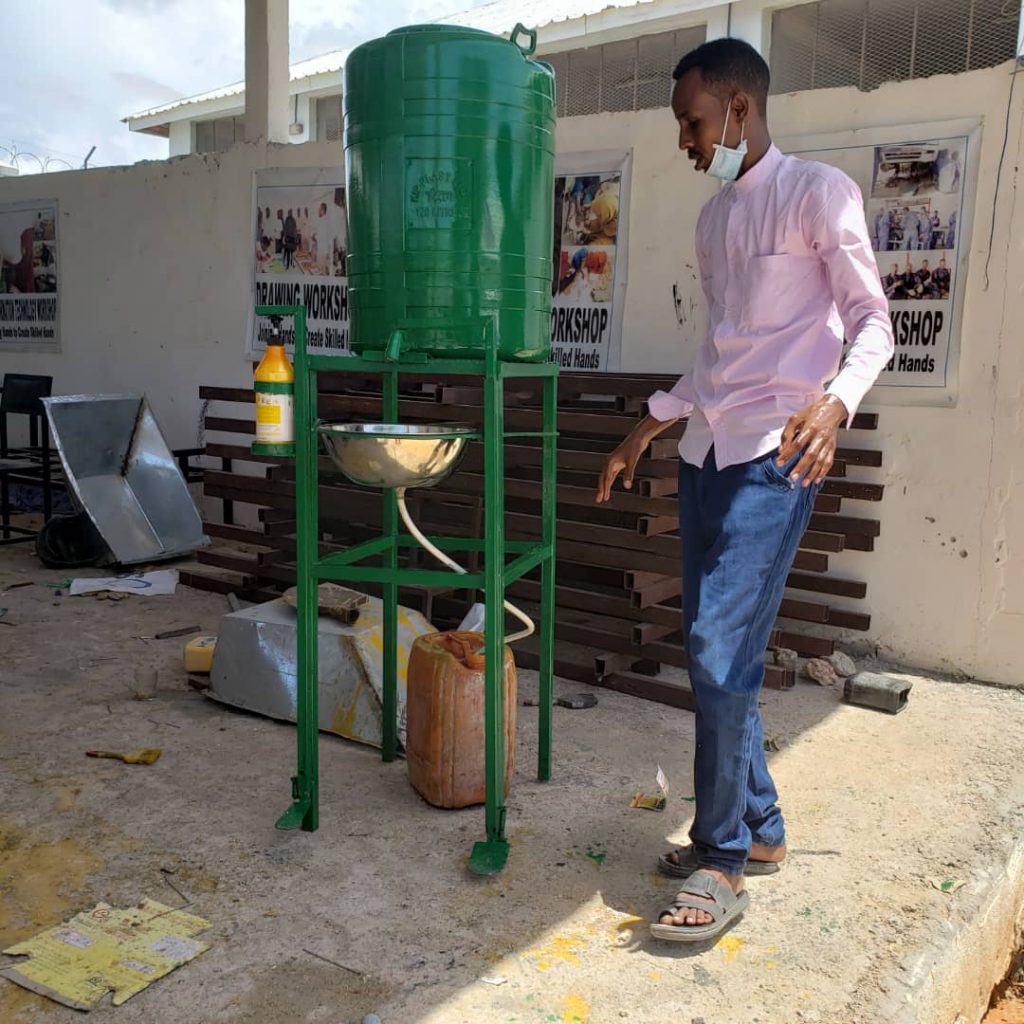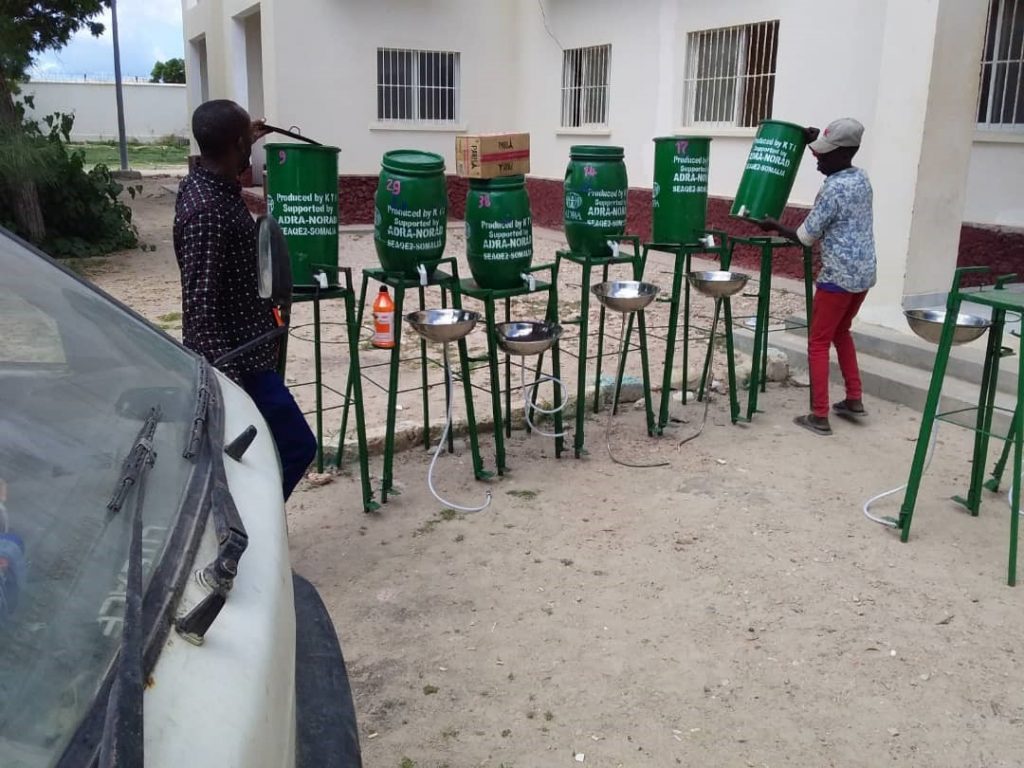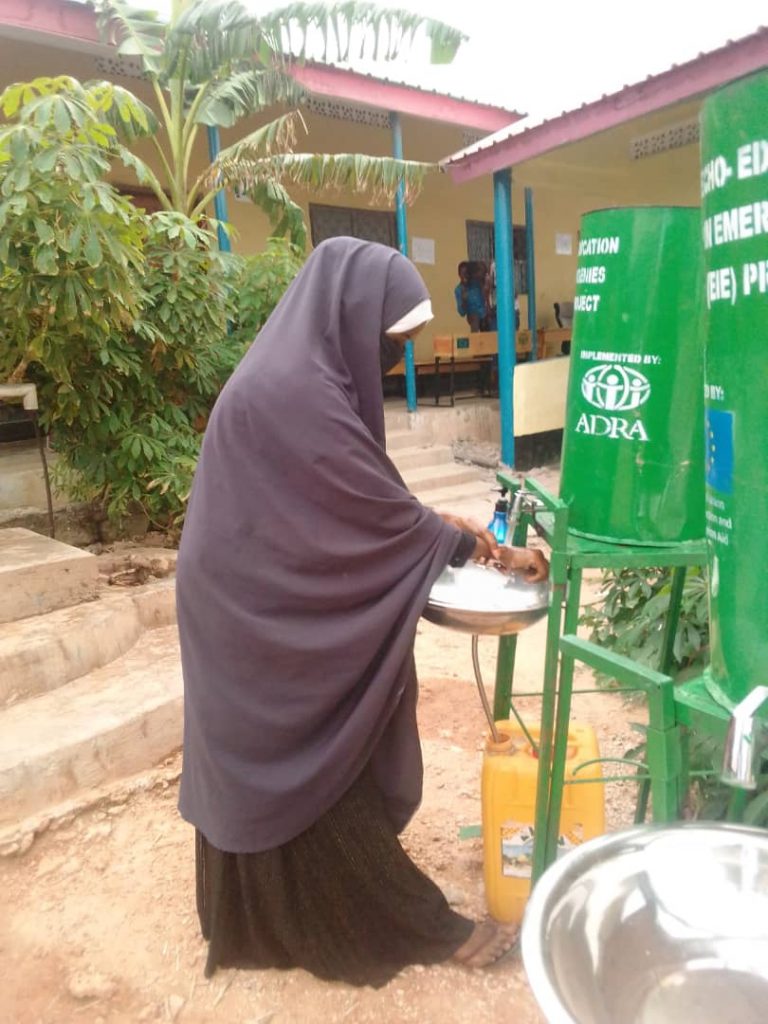The novel coronavirus (COVID-19) pandemic has forced public health officials to come up with practical and innovative solutions to end the global health crisis.
Students from Kismayo Technical Institute, a technical vocational school in Somalia, which has been supported by the Adventist Development and Relief Agency (ADRA) since 2015, saw an opportunity to make innovative handwash facilities where individuals avoid direct contact with the tap and soap as water and soap is dispensed through pedaling.

“When I heard how the coronavirus spreads and how we need to wash our hands all the time, I tried to find out a way that we can build an innovative device where one can wash their hands without touching the soap dispenser or water tap,” says Mohamud Mohamed, the initiator of the handwash facility and a welding graduate from the institute.
“As washing hands is recommended during this time, so is the need to have a sustainable innovation that is adopted to improve the functioning of an existing product,” says Kaibe Makasoma, ADRA’s project manager.
The students from the institute were able to make 50 innovative handwash facilities through the NORAD-funded Strengthening Equity, Access and Quality in Education (SEAQE) Project.
In collaboration with the Ministry of Health in Somalia, the handwash facilities were distributed in MCHs, schools, government institutions and ministries, learning centers, hotels and restaurants and the seaport in Kismayo District.

“These activities complement previous COVID-19 prevention works that the Ministry of Health and ADRA have done that include radio awareness messages, erecting infographic billboards, community health awareness and distribution of information, education and communication (IEC) materials,” says Kaibe.
The three-month COVID-19 response, that started in May is supported by the SEAQE Project and funded by NORAD. The response is expected to reach over 17,000 beneficiaries in Jubbaland and Banadir Regional Administration.

ADRA through NORAD and ADRA in Norway have been supporting Kismayo Technical Institute since 2015. Cumulatively, 1,758 (1,142 male and 616 female) youth and vulnerable women have been trained in vocational skills (TVET). The institute currently has 300 students and offers six technical and vocation courses which include electricity, welding, carpentry, auto mechanics and computer studies, and garment making.

